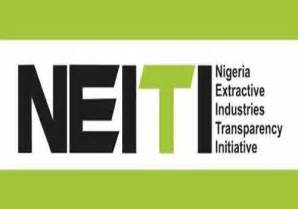Nigeria’s Debt To Soar As Report Shows States Will Rely On Borrowing To Fund 2019 Budget

A new report has shown that disbursements from the Federation Accounts Allocation Committee (FAAC) would be inadequate to fund states’ 2019 budgets, thereby forcing them to rely on borrowing to bridge the gap.
Already, Nigeria’s has a foreign and domestic debt obligation of $25.27 billion and N16.63 trillion respectively, as at 31st December, 2018, according to the National Bureau of Statistics (NBS).
The report, a Quarterly Review, by the Nigeria Extractive Industries Transparency Initiative (NEITI) released Sunday in Abuja, disclosed that even a combined net FAAC disbursement to each state in 2017 and 2018 cannot fund their respective 2019 budgets.
According to the report, the gap in the ability of FAAC disbursements to finance state budgets has made it inevitable for most of the states to rely more on borrowing as against the urgency of embarking on creative measures to improve internally generated revenues (IGR).
“This year’s budgets as already presented by 35 states cannot be adequately funded even by combined net FAAC disbursements to each state in 2017 and 2018,” the Review noted, adding that total state revenues that is, FAAC and Internally Generated Revenue, in 2017 and 2018 cannot fund 2019 budgets of 28 states.
“There is no state who’s net FAAC disbursements in either 2017 or 2018 can adequately finance their budgets for 2019, Net disbursements to states in 2017 as a percentage of the 2019 budgets ranged between 2.25% (Cross River) and 43.1% (Yobe). Also, net disbursements to states in 2018 as a percentage of the 2019 budgets ranged between 3.54% (Cross River) and 57.7% (Yobe). Thus, clearly, no state can finance its 2019 budgets solely based on FAAC disbursements,” the Review summed.

The NEITI Quarterly Review, further cautioned the three tiers of government to exercise some restraint in their expenditure profiles and continuous dependence on oil revenues to fund budgets. The publication warned that dependence on oil exports given its volatility is largely unsustainable and will continue to make planning and budgeting difficult.
On the share of the FAAC disbursements by each of the 36 States, the Review observed wide disparities. For instance, while Delta state received the highest allocation of N55.19billion, Osun state received the least of N5.11billion, indicating 980% difference.
Another significant revelation of the NEITI publication is how huge sums were being deducted directly from FAAC allocations of some states to service their debt obligations. For instance, a sum of N7.27 billion was directly deducted from Osun state allocations while Cross River State has 53% similar deductions from its allocations.
The Review also showed that a total of N1.929 trillion was disbursed by FAAC to the three tiers of government in the first quarter (Q1) of January and March 2019.
The slight fall from the N1.938trilion disbursed for the same period in 2018, have been blamed on falling in oil prices which affected government earnings and ended the recent trend of over N2 trillion disbursements which lasted for three consecutive quarters of Q2 to Q4 2018.

President Muhammadu Buhari
“Oil prices experienced a downward spiral from November 2018, prices were above $80 per barrel in October 2018 but by December 2018 they had dropped to $57 per barrel. Average oil price for the first quarter of 2019 was $63.17 per barrel. Average oil price for year 2018 was $71.06 per barrel. Thus, oil prices have been considerably lower in the first three months of 2019 than they were in 2018”, the Review stated.
A breakdown of the disbursements shows that the Federal Government received N803.18billion in the first quarters of this year. This was 1.18% lower than the N812.8billion received in the same period in 2018 and 46.2% higher than the N549.1 billion disbursed in the corresponding quarters of 2017.
A further breakdown shows that the 36 States shared N675.2billion in the first quarter of this year, representing 1.19% decline on the N683.4 billion disbursed to the states in Q1 2018 but 48% higher than the N456billion disbursed in Q1 2017.
From the review, only the N398.44 billion disbursed to local governments in Q1 2019 was higher by 1.28% when compared to N393.4 billion disbursed in the first quarter of 2018, and 47.8% higher than the amount disbursed to them in Q1 2017.
The last issue of the NEITI Quarterly Review had projected continued increase in disbursements for 2019 based on the expectation that oil prices and oil production would continue to rise.





























